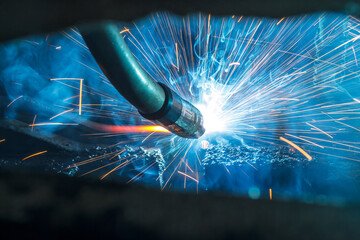Introduction
The cutting edge manufacturing scene is shifting quickly toward automation, and wire terminations are no exception. Implementing automated wire termination frameworks offers various benefits, including increased proficiency, reduced labor costs, and improved quality control. This article includes the fundamental benefits of integrating automated wire terminations in different industries.
Outline
What is Automated Wire Termination?
Key Benefits of Automated Wire Termination
Increased Production Speed
Improved Precision and Accuracy
Consistent Quality
Cost Savings
Reduced Human Screw up
Industries that Advantage from Automation
Challenges and Considerations
Conclusion
FAQs
What is Automated Wire Termination?
Automated wire termination involves using machines to play out the undertaking of connecting wires to terminals, connectors, or different components. These frameworks uproot inconvenient work with automated arms and concentrated devices that guarantee quicker, more careful, and consistent wire terminations.
Key Benefits of Automated Wire Termination
Increased Production Speed
Automated designs can perform wire terminations at speeds definitely more basic than manual cycles. This outcomes in all around higher throughput, making it an ideal solution for industries that require high-volume production.
Improved Precision and Accuracy
Automation guarantees that each wire termination is finished with a serious level of precision. This degree of accuracy is central in industries like aerospace, automotive, and electronics, where the humblest goof can incite essential consequences.
Consistent Quality
Manual cycles are prone to inconstancy considering factors like master exhaustion or experience. Automated structures eliminate these inconsistencies by maintaining consistency across all terminations, ensuring strong and repeatable outcomes.
Cost Savings
While there is an initial investment in automation hardware, the long-term cost savings from reduced labor costs, minimized material waste, and speedier production make it a gainful investment.
Reduced Human Screw up
Automation radically diminishes the potential for human misunderstanding, which can incite flawed terminations or wellbeing chances. Automated frameworks stick to changed instructions with precision, ensuring each undertaking is executed immaculately.
Industries that Advantage from Automation
Automotive: High-volume wire bridle production for present day vehicles.
Electronics: Precision wire terminations for intricate components.
Aerospace: Unwavering quality and precision for complex wiring frameworks.
Challenges and Considerations
Implementing automated wire terminations requires an upfront investment and may involve training existing staff to work new machinery. Additionally, organizations should attentively concentrate on their production needs to determine the right degree of automation for their cycles.
Conclusion
The implementation of automated wire termination frameworks offers essential benefits, including quicker production times, more critical accuracy, consistent quality, and cost savings. As industries continue to make and embrace automation, the impact of these frameworks will only turn out to be more crucial for maintaining reality in the general market.
FAQs
- What is automated wire termination?
Automated wire termination is the most common way to deal with using machines to connect wires to terminals or connectors, improving effectiveness and precision. - How does automation save costs?
Automation diminishes labor costs, minimizes material waste, and increases production speed, resulting in long-term savings. - Which industries benefit from automated wire termination?
Industries like automotive, electronics, and aerospace benefit the most from the speed, precision, and unwavering nature of automated structures. - Are there challenges in implementing automation?
Indeed, challenges include the initial investment in machinery and training expected for staff to work automated frameworks. - How does automation improve production quality?
Automation guarantees consistent and exact wire terminations, eliminating human mistake and maintaining uniform quality across all things.
